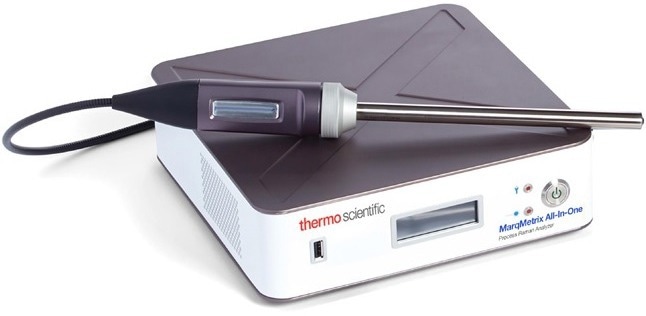Raman spectroscopy is an optical analyzing method for measuring the vibrational attributes of molecules. Raman spectroscopy has advanced process analyses, providing improved resolution compositional data, linear response to concentration, non-destructive testing, and the ability to provide real-time measurements of samples without the requirement of carrier gases or a sampling system.
Source: Thermo Fisher Scientific
| Benefits of Raman Spectroscopy |
| Rich compositional information |
| Quantitative and linear response |
| Non-destructive (no sample preparation required) |
|
Measures all sample types:
- Solid/powder/slurry
- Liquid/Gas
- Heteregenous samples
|
| Fast measurement time (miliseconds to seconds - not minutes) |
| Water has a weak signal |
Application in Lithium-ion Battery Recycling
Raman spectroscopy provides insight into the physical and chemical variations within battery components, allowing researchers and industries to optimize and monitor the recycling process.
Raman spectroscopy, with its ability to deliver swift online analysis results in seconds, enhances yield optimization and enables real-time control of the hydrometallurgical conversion processes for crucial battery elements like lithium, manganese, cobalt, and others.

The Thermo Scientific™ MarqMetrix™ All-In-One Process Raman Analyzer with a Thermo Scientific™ MarqMetrix™ Performance BallProbe™ Sampling Optic, a robust sampling optic for samples. Image Credit: Thermo Fisher Scientific
Enhancing Efficiency and Yield in Hydrometallurgical Processes with Raman Spectroscopy
This article will look at a case study of how Raman spectroscopy has been used to significantly boost efficiency and yield in the hydrometallurgical processing of spent lithium-ion batteries at a major US battery recycling company.
By adopting Raman spectroscopy for online process control and real-time monitoring, the company achieved substantial improvements in recovering valuable elements like cobalt, lithium, and manganese from batteries. This led to increased yields, reduced waste and reagent usage, and significant cost savings.

 To learn more about this case study, download the full article here
To learn more about this case study, download the full article here

This information has been sourced, reviewed and adapted from materials provided by Thermo Fisher Scientific – Materials & Structural Analysis.
For more information on this source, please visit Thermo Fisher Scientific – Materials & Structural Analysis.